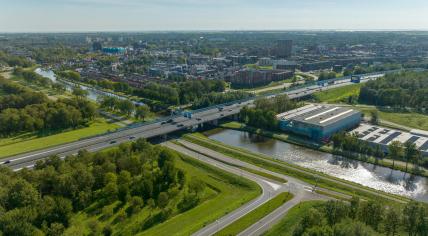In a new study conducted by the Netherlands Institute for Social Research SCP concerning findings have emerged regarding the increasing segregation between the wealthiest and poorest individuals in Dutch society. The study highlights a concerning trend wherein affluent and low-income individuals are increasingly confined to homogenous bubbles, limiting their interactions with those from different socioeconomic backgrounds. As the gap between the rich and poor widens, the implications for social cohesion and mutual understanding are profound. This article delves into the key findings of the SCP study, examines the factors contributing to social segregation, and explores potential solutions to foster greater inclusivity and interaction across socioeconomic divides in Dutch communities.
The Growing Divide: Key Findings of the SCP Study According to the SCP study, the mingling of wealthy and impoverished individuals in Dutch society has significantly decreased over the past decade. Affluent individuals, particularly in regions such as Eindhoven and the northern Randstad, are increasingly residing in exclusive enclaves, leading to a lack of diversity in their living environments. Conversely, low-income earners, particularly in urban areas and specific clusters of municipalities, are more likely to be confined to segregated neighborhoods, exacerbating socioeconomic disparities. The study also highlights the adverse impact of rising home prices on housing accessibility and social integration, further perpetuating the cycle of segregation.
Root Causes of Social Segregation Several factors contribute to the growing trend of social segregation observed in Dutch society. One significant factor is the economic polarization resulting from widening income disparities and rising housing costs. As affluent individuals gravitate towards upscale neighborhoods, driven by increased wealth and property values, the affordability gap for low-income earners further limits their housing options, leading to spatial concentration and social isolation. Additionally, historical urban planning policies, inadequate government interventions in vulnerable neighborhoods, and diminishing roles of housing associations have compounded the problem, exacerbating inequalities and hindering efforts to promote social integration.
Implications for Social Cohesion and Mutual Understanding The escalating segregation between rich and poor individuals poses significant challenges to social cohesion and mutual understanding in Dutch communities. By fostering insular living environments and limiting interactions across socioeconomic divides, society risks perpetuating stereotypes, exacerbating inequalities, and undermining solidarity. Moreover, unequal opportunities resulting from segregated living arrangements can perpetuate cycles of poverty and social exclusion, impeding upward mobility and hindering efforts to achieve a more inclusive and equitable society.
Addressing Social Segregation: A Call for Action The SCP study underscores the urgent need for concerted efforts to address social segregation and promote inclusivity in Dutch society. Key interventions include revitalizing urban neighborhoods, enhancing public spaces, and expanding access to public facilities to create opportunities for diverse interactions and social engagement. Moreover, promoting mixed-income housing developments and implementing inclusive urban planning strategies can mitigate spatial concentration and foster more integrated communities. Additionally, initiatives to facilitate interactions across socioeconomic divides in the workplace, such as diversity training and networking events, can promote greater understanding and collaboration among employees from diverse backgrounds.
The findings of the SCP study shed light on the concerning trend of increasing social segregation in Dutch society and underscore the urgent need for proactive measures to foster inclusivity, diversity, and social cohesion. By addressing root causes, promoting integrated living environments, and facilitating meaningful interactions across socioeconomic divides, Dutch communities can strive towards a more equitable and harmonious future. It is imperative for policymakers, urban planners, and community stakeholders to collaborate effectively and implement holistic strategies to address social segregation and build a more inclusive society for all.
